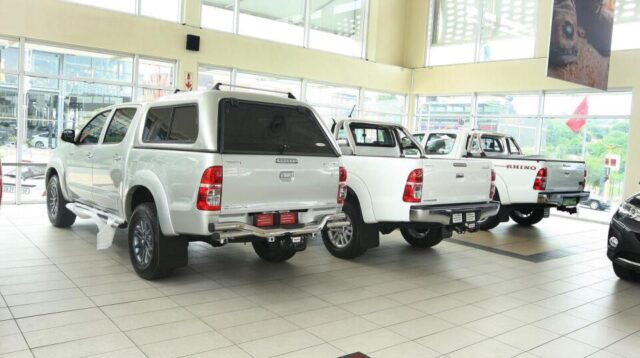This was the sixth month of declining sales this year and the fourth consecutive month of negative growth. The new vehicle sales market, which is used as a measure to gauge economic activity and consumer buying power, continued to struggle.
THE AUTOMOTIVE Business Council (Naamsa) has warned of a serious economic downturn in the months ahead after new vehicle sales fell for the fourth month in a row due to logistical challenges and intensified power cuts.
Naamsa on Friday said the challenges at the ports and across the entire freight rail network was impacting negatively on the vehicle production landscape and on new vehicle sales in South Africa.
This comes as the vehicles market declined by 9.8% in November and recorded 45,075 registrations, compared to the 49,986 vehicle registrations recorded in the same month last year.
This was the sixth month of declining sales this year, and the fourth consecutive month of negative growth. The new vehicle sales market, which is used as a measure to gauge economic activity and consumer buying power, continued to struggle.
Consumers have remained pessimistic about making large-item purchases such as vehicles due to heightened interest rate environment, and the supply-side challenges with logistics and electricity crisis have impacted productivity.
Naamsa said the challenge at the ports will soon have a devastating domino impact on the entire auto value chain, becoming the single biggest risk for the sector should the government not urgently address many of the leadership and systemic structural challenges experienced by Transnet.
Naamsa CEO Mike Mabasa said the automotive sector’s productivity relied heavily on infrastructure investment, sustainable energy supply, and the revitalisation of South Africa’s ports, rail and road.
Mabasa said a conducive framework was crucial to support these critical elements.
“November’s vehicle data reveals a fourth consecutive monthly decline in new vehicle sales, attributed to the return of the Stage 6 load shedding’s schedule and supply chain disruptions at Transnet,” Mabasa said.
“All new vehicle market segments declined, with a boost coming from the export side.”
At the beginning of 2023, the new vehicle market was 1.3% below the pre-pandemic level of 2019.
For the year to date it was now 0.5% ahead of the same period 2022 which means that, depending on the December sales figures, could miss out on returning to the pre-pandemic level after three years.
The November new passenger car market at 29,252 units had registered a significant decline of 4,184 cars, or a loss of 12.5%, compared to the new cars sold in November 2022.
Domestic sales of new light commercial vehicles, bakkies, and mini-buses at 11,279 units during November fell by 16.2% with a decline of 2,188 units, from the 13,467 light commercial vehicles sold during November 2022.
The National Automobile Dealers’ Association (Nada) said the resilience of motor vehicle retailers had finally yielded to the pressures of a depressed economic environment, resulting in a substantial decline across all market sectors in November.
Nada’s national chairperson Brandon Cohen also attributed the downturn to a confluence of global unrest, political uncertainty, increased load shedding and logistical challenges at ports, roads, and railways.
“These factors, coupled with rising household costs, have collectively dampened consumer and business confidence,” Cohen said.
Despite the downturn, Cohen highlighted a glimmer of positivity, stating that year-to-date vehicle sales standing at 491,967 units after 11 months was still higher than the comparable period last year.
“The challenge now is whether December sales can sustain this slim annual growth,” he said.
November aggregate export sales continued in line with general industry expectations and increased by 25.5% to 41,660 units compared to 33,207 last year, supported by the light commercial market exports which grew by an impressive 72% at 16,066 units.
WesBank head of marketing and communication Lebo Gaoaketse said the volatility of the energy crisis also continues to weigh on consumer and business confidence.
Gaoaketse said with the return of higher stages of load shedding during November, sales during December and January could be expected to experience a higher-than-usual wait-and-see approach to purchase decisions.
“The consideration will now be whether the new vehicle market can show any growth at all in 2024, depending on what December sales contribute to the annual volume,” Gaoaketse said.
“But relative to the headwinds that have faced the economy and market this year, volumes hovering towards the mid-40,000 sales mark continue to provide opportunity to consumers, dealers and the brands themselves.”
– BUSINESS REPORT








